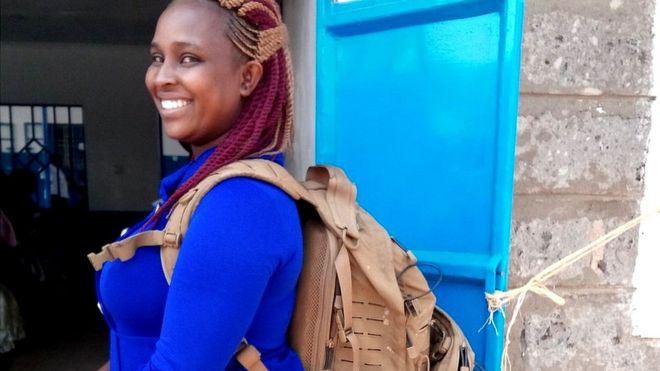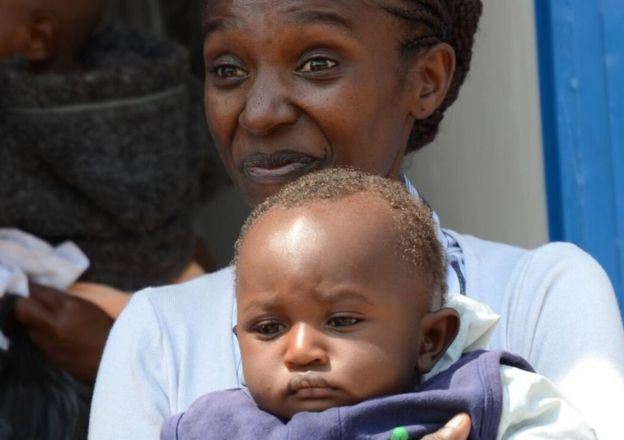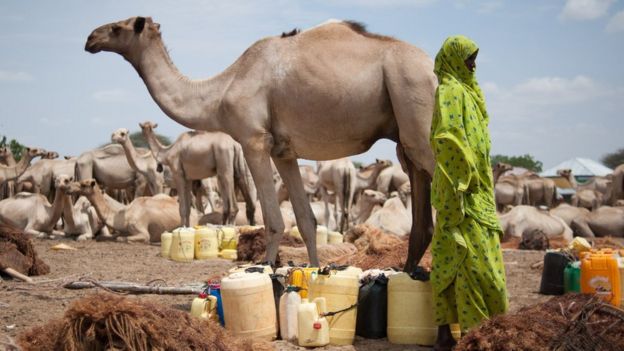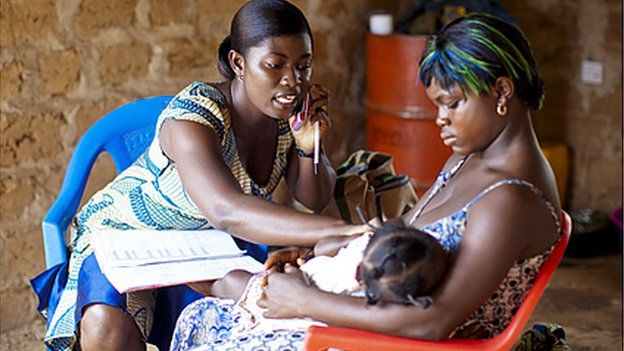

Minister of Budget and National Planning, Udo Udoma
Yearly, the menace and scam has been perpetrated with inexplicable terms, repetitions, and mind boggling sums cutting across from the agencies to the Presidency. Sometimes, some of the expenditure proposals cannot be supported by any high level national plan or policy.
These frivolities ignore the pressing problems and challenges, while providing for the fancy, whims and caprices of the budget crafters. The inappropriate provisions also are not suitable or proper, given the present circumstances. They are short of policy goals declared by the government.
Unclear provisions are deliberately crafted by Ministries, Departments and Agencies (MDAs), to deceive the uninitiated and sail through given the volume of the document, as many who would have shown interest are discouraged ab initio by numerous pages made of the national plan.
Already, about N219.4billion has been identified as resources to be saved and reprogrammed by the National Assembly, if only the lawmakers will do the needful for the common good.
The Lead Director, Centre for Social Justice (CSJ), Eze Onyekpere, while speaking with The Guardian, said the strategy is made to confuse, and most times, the provisions do not have any fixed meaning, without clear activities, services, goods, construction and deliverables that any reasonable person can understand.
“In the age of ‘Buy Made in Nigeria’, most MDAs are insistent on buying foreign products and brands, and even have the temerity to put the foreign brands in the budget when there are equally good locally made alternatives. This is more pronounced in the quest for foreign SUVs,” he said.
For the BudgIT, a civic organisation that applies technology to intersect citizen engagement with institutional improvement, to facilitate societal change, the 2018 plan is masked with several opaque administrative items as capital projects just to shore up the percentage of capital component.
In the 2018 budget proposal, there are huge provisions for cleaning and fumigation and subscription to professional bodies, which are obviously bogus, while the yearly ritual of buying computers and computer software remained large in almost all the government agencies.
Specifically, from the Office of the National Security Adviser, over N1.14billion was proposed for cleaning and fumigation services. This sounds outrages for a mention, and in the usual budget process, it will go through without further inquisition to know how many “estates” are involved in this sanitation and “chemical bath”.
Similarly, the Directorate of State Security Service came up with a N2.2billion proposal tagged, “Social Media Mining Suite.” These proposals need further explanation and interrogation to determine the appropriateness and purpose of this vote.
These raise more posers: Should the government be buying computers and software every year? What happened to previously acquired computers and software? At the State House, Presidential Villa, there are large requests for yearly maintenance, repairs, and rehabilitation far in excess of the reasonable needs of the Villa. This tradition is followed by a number of MDAs.
The State House, Lagos Liaison Office, put in a request tagged Maintenance of Office Building/Residential Quarters for N31million and another, “Rehabilitation/Repairs of Office Buildings for N145.8million. What is the difference between the two provisions by the agency?
It is regrettable that a budget head like Service Wide Vote still remains in the national fiscal plan years after the Oronsaye Committee instituted by the same Federal Government declared it illegal and wasteful. Since then, its appropriations have not been below N300billion yearly, and there has not been any physical evidence of its accomplishments, even under the current administration.
Out of this provision for 2018, an item tagged, National Planning Commission (Infrastructure Master Plan) will get N1.2billion. This is despite the fact that there is a full ministry with the same name. What part of the Infrastructure Master Plan is to be implemented with this vote? This is a regular vote every year and lawmakers should call NPC to give an account of what they did with the vote in the last two years.
Onyekpere noted that “The huge vote of N51.75billion for social development goals (SDGs) calls for vigilance and proper oversight on the part of the legislature after approval. For over 13 years, this type of vote had been approved without Nigerians getting value and improvement in their lives for the large sums of money.
“Some MDAs simply played on words like ‘empowerment’, ‘capacity building’ and ‘human capital development’ to request for large sums of money. But the word empowerment is devoid of specificity. It is hanging and must be contextualised. Also, capacity building ought to be done within the context of developing specific competencies. Again, there are many requests for research and development, which are hanging and not specifically tied to any deliverables,” he added.
Office of the Secretary to the Government of the Federation repeated the fumigation conundrum for N106.8million, and added “Subscription to Professional Bodies”, N208million; and “Computer Software Acquisition” for N170million. How large is this office? How many persons are deployed in this office that pays annual dues and at what rate? What happened to previously acquired software, which is procured yearly?
The Programme Officer, Environment, CSJ, Martins Eke, observed that the proposals of the Federal Ministry of Agriculture and Rural Development are suffused with large sums of money without specifics and details, and if not properly clarified, Nigerians will be in the dark as to what these sums of money are voted for.
“ Promotion and development of rice value chain for instance, states nothing about the activities, goods and services to be delivered with billions of Naira. This means that citizens cannot be reasonably expected to monitor projects they do not know about. This is not a good way to craft a budget. Transparency, which leads to accountability, is imperative to make these proposals reasonable.
“Nigeria is still planning to build a nuclear power plant, when we lack the capacity to manage it. This is coming at a time major world powers are decommissioning their nuclear power plants. It makes no sense, and it is suicidal to continue this quest,” he argued.
The Communications Lead at BudgIT, Abiola Afolabi, said about 42.9 per cent of Capital Projects in the 2018 proposed budget only looked like it, but has no direct impact on citizens.
Corroborating a recent analysis by BudgIT, he told The Guardian that approximately N744.48billion of the N2.65trillion capital allocation will go into administrative items, which include the procurement of cars, retrofitting of government offices, trainings, consultancies, purchase of furniture, and computers and so on.
Given that the funds marked for capital expenditure will be largely borrowed (as highlighted in the proposed 2018 budget), it is disheartening to discover that most line items therein show a great disconnect from the developmental goals of government, as stated in its Economic Recovery and Growth Plan (ERGP).
The deficit in the plan is estimated at N2.005trillion – 23 per cent of the overall expenditure, and 30 per cent of the retained revenue and to be financed mainly by borrowing of about N1.699trillion from external and domestic sources. This will further add to our already high debt profile and increase provisions for debt repayment and servicing in subsequent years. The balance of N306billion is to be financed from proceeds of the privatisation of some non-oil assets by the Bureau of Public Enterprises.
“In a pre-election year, we would have expected that capital projects will be solely devoted to projects with direct developmental impact on the larger population. We have seen several items included in the capital budget that should ordinarily have been excluded given the tight fiscal condition and meagre economic growth. Most of the administrative capital items as shown in our research analysis will benefit less than one per cent of its populace – politicians and civil servants.
“Our scope of developmental capital projects as urgently needed should include the acquisition, upgrading, construction and maintaining of physical assets such as hospital, schools, roads, railways, power plants, street lights, and boreholes among others. In contrast, administrative capital items are projects that cannot be easily accessed by the general public and have very little or no developmental impact on the population.
“We also notice the fragmentation of capital items, as 94.7 per cent of the 9,331 line capital items in the 2018 proposed budget have monetary values below N500million each, but accompanied with vague descriptions that will prove difficult to monitor or track in physical and auditing terms,” he said.
Presently, civil society groups are raising alarm on the above subject matter, as further breakdown of the fiscal plan showed that only 26 per cent of capital allocations to the ministries are trackable, and/or can be directly linked to the written, medium-term aspirations of the government as highlighted in the Economic Recovery and Growth Plan. They include Health, Education, Agriculture, Transportation, Niger Delta, Water Resources, Science, Works, Power and Housing.
There is also the concern that the Medium Term Expenditure Framework 2018-2020 (MTEF), has not been approved and as such, could not have been the basis for the preparation of the 2018 budget as required by Section 18 of the Fiscal Responsibility Act (FRA). The available MTEF is still a proposal that is subject to legislative alteration before approval.
Section 18 of the FRA states: “Notwithstanding anything to the contrary contained in this Act or any other law, the Medium-Term Expenditure Framework shall – (1) be the basis for the preparation of the estimates of revenue and expenditure required to be prepared and laid before the National Assembly under section 81 (1) of the Constitution. (2) The sectoral and compositional distribution of the estimates of expenditure referred to in subsection (1) of this section shall be consistent with the medium-term developmental priorities set out in the Medium-Term Expenditure Framework”.
Across the board, a significant amount of capital allocated in the 2018 budget falls under certain generically-named items, which have no detailed description, and do not communicate the number of beneficiaries of such items.
Over the years, it is common to find the following entries in the budget of every government MDAs: welfare packages, sporting activities, drugs and medical supplies, medical expenses, software acquisition, monitoring and evaluation, budget preparation, access to credit, food and agricultural policies, and international training.
Afolabi noted that “This system of budgeting with ‘one-liners’ without details, gives room for financial indiscretion, and the potential abuse of funds. It is antithetical to what the government continually professes to stand for.
“Most crucial is that the Federal Government is yet to come out plainly on the amounts spent on capital items in the 2016 and 2017 financial years. While the Ministry of Finance repeatedly claims a sum totalling N1.2 trillion has been released, the Budget Implementation Reports released by the Budget office of the Federation show otherwise.
“Overall, we believe that the 2018 budget proposal will need proper interrogation from all stakeholders and also important for the National Assembly and Executive to significantly reduce the administrative component of the budget, and direct funds towards improving education, health, and other critical infrastructure.”
Therefore, it is still not late for the lawmakers to dig deep for the details of these controversial issues, correct the anomalies, and conclude early, especially with regards to the touted new fiscal calendar. It is a matter of priority, acclaimed patriotism, transparency and accountability and good of the economy.





